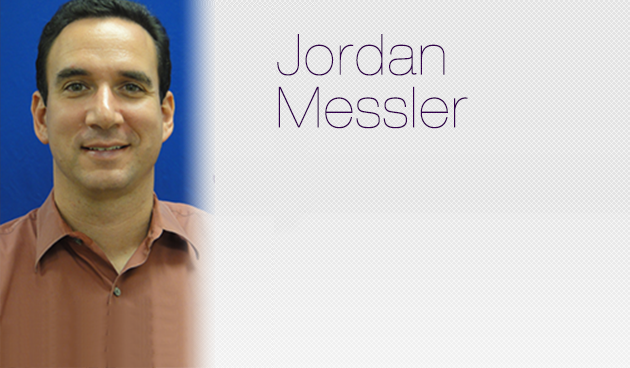One of my favorite bands, The Head and the Heart, released Signs of Light last month. A more pop album than their prior folk rock versions, it’s still a good listen. The group states the origin of the name comes from a recognition that doing what you love – in this case, music – creates unintended sacrifices in the rest of life, such as relationships and friendships. Life is filled with these balances.
The world today seems to be polarizing on notions of ideas that feel right versus ideas that are thoughtful. In reality, it’s some combination of both – to sell ideas, they require simple messaging with depth of thought. That same philosophy applies in life, and of course, in the hospital as well.
Hospital comes from hospes, the Latin word for stranger, host or guest. Hence, the origin of similar words such as hostel, hospice, hotel and hospitality. A patient is a guest in the hospital, treated with shelter, food, care and comfort. Yet, they are also the host in this new environment, giving us permission to understand their story and perform procedures and exams 24/7, with the understanding that a reciprocation of care occurs.
When I enter a patient’s room, I treat it as a surrogate for that person’s house because for these short few days, the hospital becomes their home. I knock on the door, open slowly, ask permission to enter and walk in when granted. Since I’m entering someone’s house, I make the environment as quiet and comforting as possible. Adjust the bed, pull up a chair, turn down or off the TV and always do something simple that gets me strange looks almost every time. I close the door behind me.
What inevitably happens next is the door reopens. That’s ok. But it’s not closed again. Soon after, someone else walks in and starts talking to the patient while I’m in the middle of my history or exam.
What I don’t understand is when I get strange looks when I perform this ritual. I close the door, and I’ll get a glare, as though I’m shutting them out as opposed to creating warmth of quiet and confidentiality for the patient and family. Some nursing carts will be half in the room and half out of the room. I’ll ask someone if they are in or out, so I can move the WOW accordingly. And I get a look of confusion. Or whispering out in the hallway. “Why is that door closed?” “What’s he doing in there?” “I don’t think he likes me.”
What’s the easier path? Certainly walking right in, not finding a chair, not setting the scene and not closing the door saves time. Apparently, that’s the normative behavior and current culture. The expectation is that doors stay open, TVs left on and the doctor is in and out quickly. Closing the door is the opposite of what is expected, hence the leers when I close the door. Closing the door is swimming upstream, countercurrent to the culture.
We can bring that same mentality to other aspects of patient care. Recently, when I came on service, I stopped an as-needed order for hydralazine, and soon after, a note appeared in the chart that the doctor wasn’t addressing the elevated blood pressure. The nurse didn’t notice I increased the scheduled medications and stopped the saline that was running endlessly. Even after explaining what I was doing with the nurse, she still didn’t understand the rationale for stopping the as-needed blood pressure med.
PRNs are the culture. Managing HTN urgency in the hospital should be done as a slow medicine movement by adjusting the daily meds. What’s the simplest path? Writing a blanket order for PRN meds, so that nursing won’t call for an elevated BP. But then, the meds won’t get their proper adjustment, the patient veers between highs and lows and it’s not the right care. But, yes, it’s easier to do.
Converting IV steroids to PO for COPD exacerbation, changing nebs to inhalers, stopping GI prophylaxis when not needed, using a venous blood gas instead of arterial, stopping tele for a low probability chest pain after 6 hours… All get glances of confusion. We’re stopping things we do for no reason, yet because they are not part of the culture, even though they are evidence-based, they are met with confusion. A patient comes in with chest pain. Admit, consult cardiology. Back pain? MRI. Compression fracture? Kyphoplasty.
What’s easy? Easier to admit. Easier to order the test. Easier to have surgery.
What’s hard? Canceling tests, not giving that antibiotic, not having the procedure, changing the culture.
What’s right? The dialectical approach, a thoughtful combination of both. Thinking with the head and the heart.
Easy vs Hard. Simple vs Complex. Heart vs Head. Host vs Guest. Conflicts that seem natural. Working off the gut is easier, simpler, more straightforward. But there are no shortcuts. Shortcuts lead to more shortcuts, and soon, medicine would be reduced to simple steps in a complex world. We all learn about Occam’s Razor but then fail to recall that medicine is more like Hickam’s Dictum – the patient can have any number of diseases they desire.
Shortcuts lead to medical error, shortchanging culture and short-term wins at the expense of long-term gains.
Life requires us to dig a little deeper. Medicine expects us to use our head and our heart.
Some things are simple, some complex. Sometimes I work with my heart – my first instinct – but working off my head will lead to better results in the end.
And if all that doesn’t seem right, just turn off the news, forget about your patient list for a minute and listen to some music.



Leave A Comment